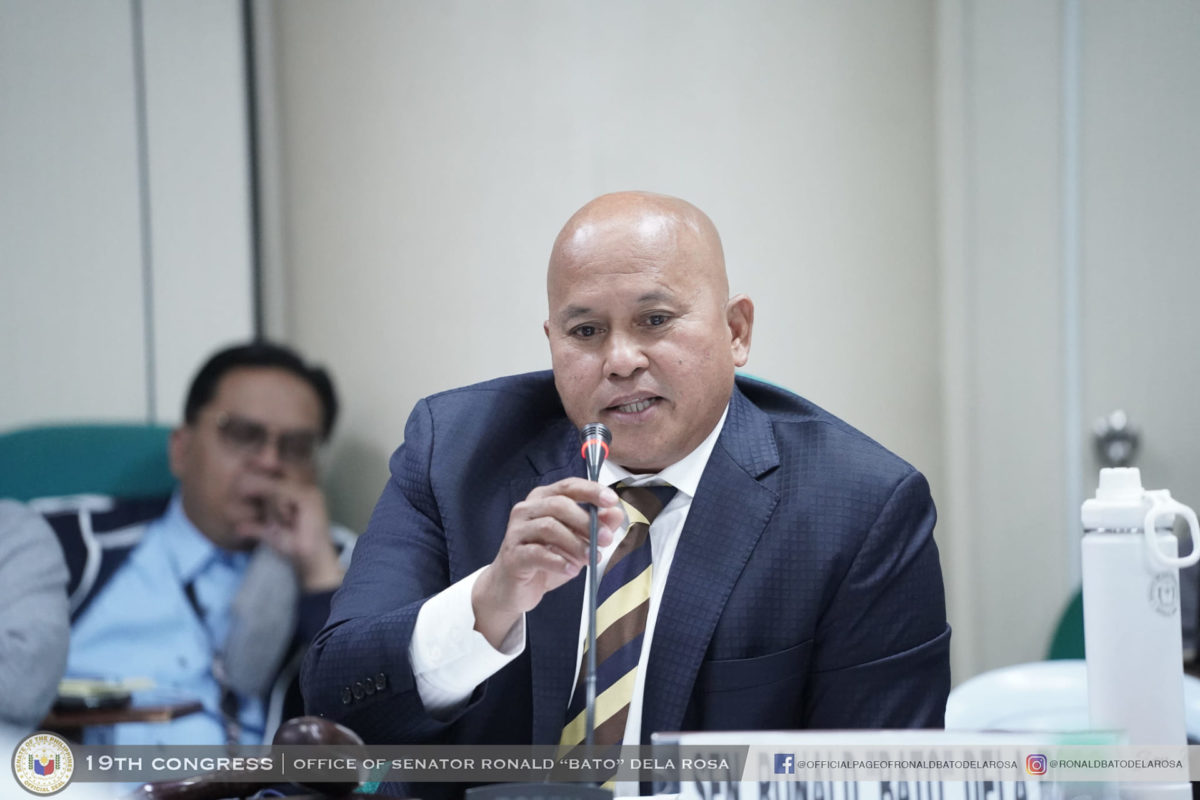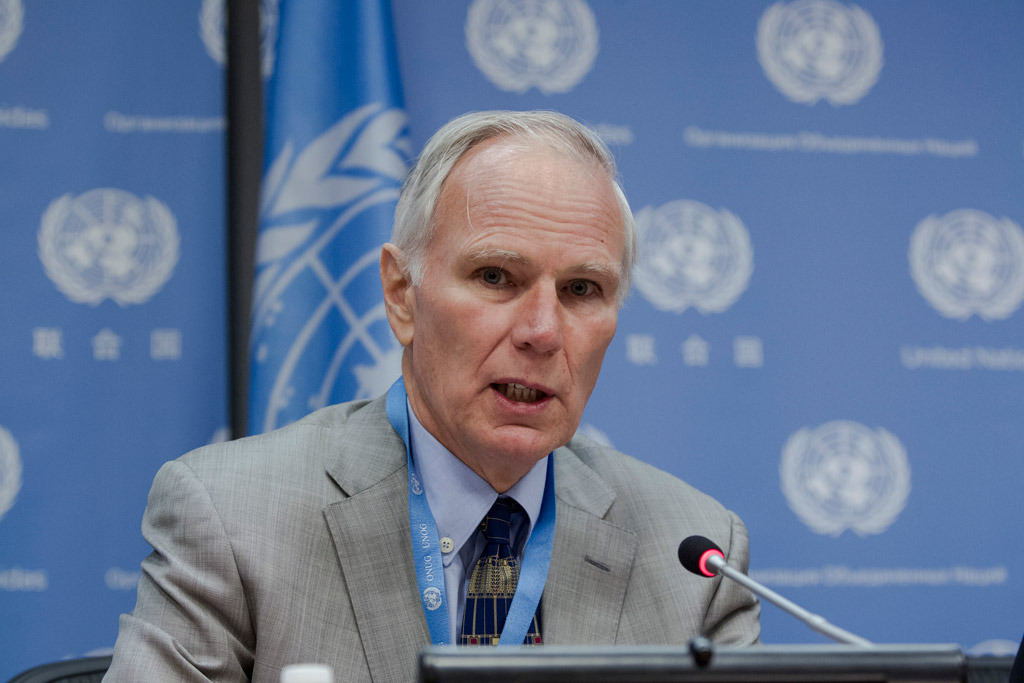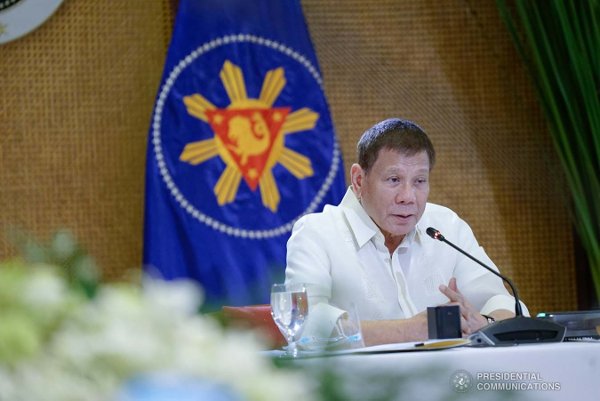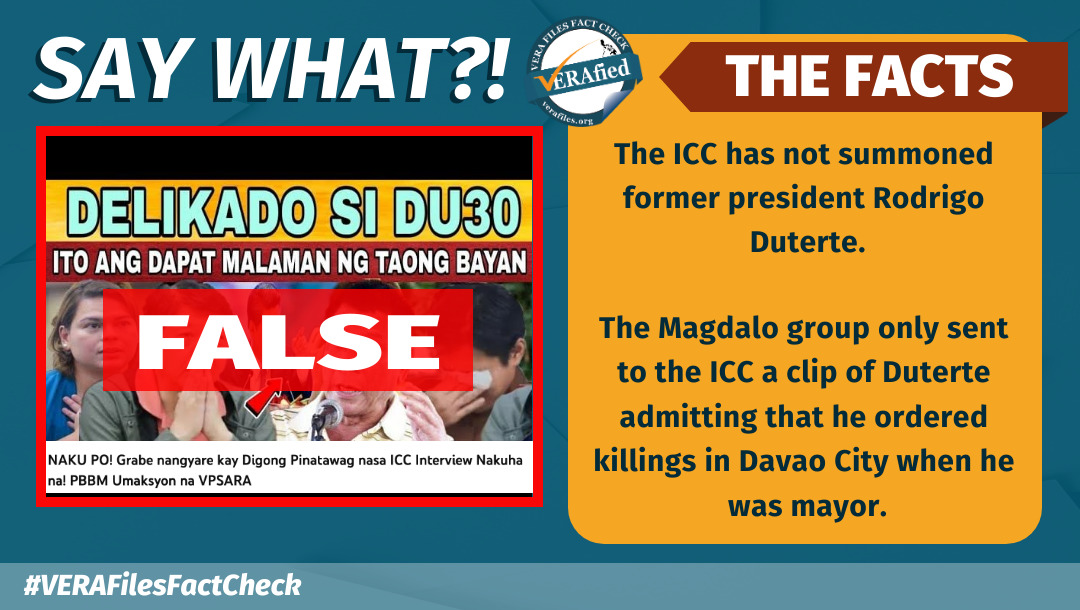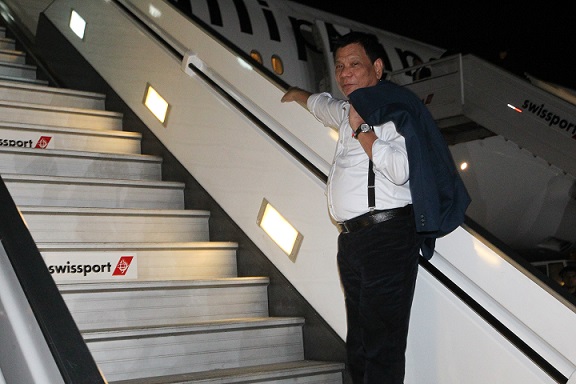
Pres. Duterte boards his plane after the APEC meeting in Peru last February. Malacanang photo.
In dismissing the Communication filed about extrajudicial killings committed in his war against drugs at the International Criminal Court inThe Hague, Netherlands last week, President Duterte cited the principle of territoriality.
“The fundamental thing in our Revised Penal Code is territoriality. You can only be prosecuted in the country where you committed the crime,” he said.
He added, “What are the features of our criminal system? One is territoriality.”
Duterte must have forgotten that the Philippines is a signatory to Rome Statue of the International Criminal Court which was ratified by the Philippine Senate in 2011. The ICC has jurisdiction for the crimes committed “by a State Party national, or in the territory of a State Party, or in a State that has accepted the jurisdiction of the Court.”
As such, if the ICC issued a warrant of arrest for him, he can be arrested in any of the 124 ICC state parties when he goes abroad.
Duterte cannot confine himself to the country during his presidency all the time. As president, he has to represent the Philippines in international meetings like the summits of the Association of Southeast Asian Nations and the Asia Pacific Economic Cooperation.
He may find himself in the same situation as Sudan president Omar Hassan Ahmad Al Bashir who was indicted by the ICC of five counts of crimes against humanity, two counts of war crimes, and three counts of genocide committed in Darfur, Sudan.
Al Bashir can only travel to friendly countries and had to take longer routes to avoid passing through the airspace of ICC member countries. His plane is always escorted by two fighter jets, reports said.
As of 3 December 2016, 124 states have ratified or acceded to the Rome Statute. The United States is not a signatory. The United Kingdom is a signatory.
It was a moment of pride for the Philippines when Ambassador Libran Cabactulan, Philippine Permanent Representative to the United Nations deposited the instruments of ratification of the Rome Statute with the international body.
“The Philippines, a democracy that champions international law and the rule of law, views being party to the Rome Statute of the ICC as a vital part of the on-going global campaign to end impunity and violence against individuals and to further strengthen a rules-based international system, specifically in relation to international human rights law and humanitarian law,” Cabactulan said six years ago.
A warrant of arrest may be issued by the ICC once the information they have justifies an investigation.
Here’s a primer from the ICC on the issuance of a warrant of arrest to an accused person:
Q: What is “an arrest warrant”?
A: An arrest warrant is an order issued by a public officer, who authorizes the arrest and detention of an individual. In the case of the ICC, the Pre-Trial Chamber (PTC) will authorize such an arrest warrant, upon an application by the Prosecutor. (An indictment, mostly used in common law countries, is a formal charge against an individual (or formal accusation) for having allegedly committed a serious criminal offense. The indictment procedure is being used by the ICTY but not by the ICC.)
Q: What is the purpose of an arrest warrant?
A: The purpose of an arrest warrant is to ensure that:
• The person appears at the trial;
• To ensure that the person does not endanger or obstruct the investigation or the court proceedings; and,
• When necessary, to prevent the person from continuing with the alleged crime or a related crime.
Q: What happens after an arrest warrant and a request for arrest has been issued?
A: The ICC does not have its own police force. When an arrest warrant has been issued by the Pre-Trial Chamber, the Court relies on the cooperation of States and international organizations to arrest and surrender the person. Moreover, the Court may, by itself or following a request by the Prosecutor, take certain measures that are necessary to ensure the safety and well-being of any victims and witnesses, including measures related to the protection of information. (Rome Statute, Article 87)
States Parties are to comply immediately with requests by the ICC to arrest and surrender accused persons in their territories. The ICC must assist States in locating the accused, including providing information enabling the identification of the person and documents needed to arrest a person according to the national legislation of that country. A State Party receiving a request for cooperation has to keep the request confidential. Any information about the request may only be disclosed if this is necessary for the execution of that request (Rome Statute, Article 87).
Once a person has been arrested and the Court has been informed about the arrest, the Court must hand over the arrest warrant to the arrested person. The arrested person must then be brought before a court in the State of custody which must determine, based on its national laws, that the right person has been lawfully arrested (Rome Statute, Article 59).
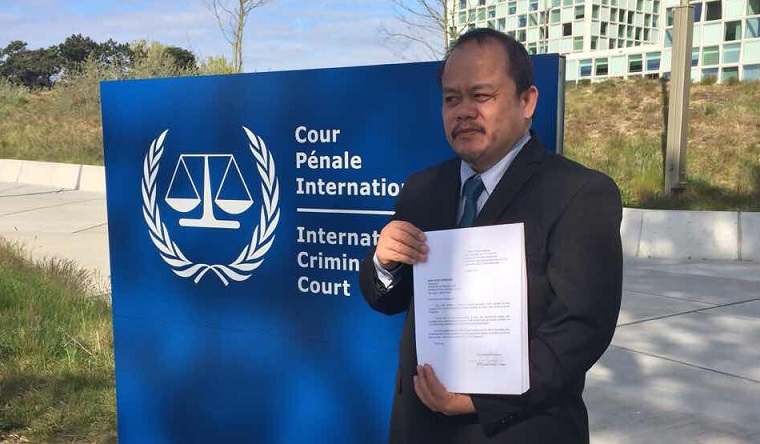
Atty. Jude Sabio accuses Pres. Duterte of crimes against humanity before the ICC.
Atty. Jude Sabio, the lawyer who accused Duterte of having committed crimes against humanity before the ICC, said the availability of information against Duterte will help the ICC in its preliminary investigation.
Self-confessed members of the Davao Death Squad Edgar Matobato, Ernesto Avasola, and SP03 Arturo Lascañas are expected to testify against Duterte.
Last year, ICC chief prosecutor Fatou Bensouda said she was “deeply concerned” about thousands of killings in the Philippines in connection with Duterte’s campaign against illegal drugs.
